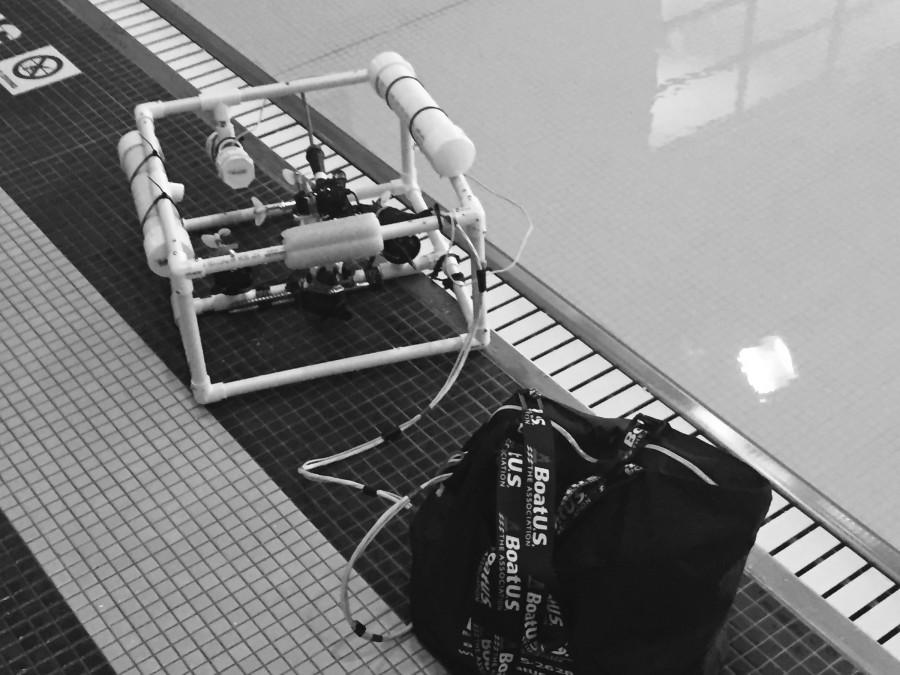Freshmen work with ROVs
LT students use engineering skills to compete in contest
April 15, 2015
A team of freshman [list of names to come from source ASAP] led by Bowen Pearson ‘18 has been diligently working on creating the ultimate functional and efficient underwater remotely operated vehicle (ROV) to compete in the Shedd Aquarium’s 2015 Midwest Regional Competition Saturday, April 26. The competition is held through the Marine Advanced Technology Education Center (MATE) at the University of Illinois at Chicago (UIC) pool.
Pearson’s love for robotics began at an early age and was influenced heavily by his father’s line of work.
“My dad builds ROVs for a living and he’s responsible for most of the WWII birds that have been lifted out of Lake Michigan and salvaged,” Pearson said. “I’ve been interested in robotics since I was a kid; I’ve always loved the little RC cars and helicopters. When my parents and I found this program, I instantly had to do it.”
When Pearson initially approached aviation and engineering teacher David Root about recruiting other students to join his robotics team for the MATE competition, Root was happy to not only offer support to Bowen, but to suggest opening up the MATE competition as a club at LT.
“After speaking with Bowen and seeing their team work in the water, I helped them just schedule some pool time [at SC] and we realized that this might be something that we should incorporate more into our curriculum,” Root said. “We might try to develop it as a club if I see the interest there. I think a lot of the students who got into land based robotics will transition into this; it’s just robotics on an underwater basis.”
The MATE competition is divided into four levels of competition: Scout, Navigator, Ranger and Explorer, with Explorer being the highest level. Pearson’s team will be competing at MATE through the Ranger mission which is classified as the intermediate level of competition, according to the MATE Shedd Aquarium Midwest website.
All of the ROV missions on the Ranger level rely solely on sensors and the camera that the team has quipped their ROV with and participants cannot look in the pool to move their ROV.
The assembly of an underwater ROV is a very delicate and time consuming process, but Pearson has high hopes for a strong showing at UIC.
“Aquatics are much harder to make because you have to waterproof everything. If any single part of electricity touches the water the whole thing will fry and that could also endanger human lives,” Bowen said. “But I think we have a pretty good shot. The competition’s going to be pretty tough, but we’re also pretty tough.”
Overall the team is excited to have their ROV contend in the MATE competition later this month and hopes that this experience will lead to LT adopting robotics as a club.
“We’ve been talking with them [Bowen and his team] and we’ll see how the competition goes,” Root said. “Bowen and his team will act as our guinea pigs and see if it’s a feasible thing to create as a club and we’re hoping to make this a club next year, but it really depends on the team now and how they do at the competition. But I do think they have as good a shot as any team.”



















![Movie poster for '[Rec]" (2007).](https://www.lionnewspaper.com/wp-content/uploads/2023/04/rec-640x900.jpg)


